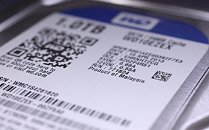Wednesday, July 18th 2018

Western Digital Shuts Down Hard Drive Factory - Just not Enough Demand
With the advent of solid-state storage in pretty much every device you can think of, demand for mechanical HDDs has gone down, because users prefer fast and compact SSD storage over the mechanical dinosaurs. HDD manufacturers have been trying to stop the inevitable by coming out with new technologies to increase capacity - faster than SSD pricing can drop, but it seems they can't prevent the inevitable.
Now The Register UK reports that Western Digital will close its HDD factory near Kuala Lumpur, Malaysia. This is one of the company's first factories, operating since 1973. After the shutdown of the Malaysia plant, WD will be left with only two factories in Thailand, and is now trying to gain more share in the SSD market.WD provided the following comment:
Source:
TheRegister
Now The Register UK reports that Western Digital will close its HDD factory near Kuala Lumpur, Malaysia. This is one of the company's first factories, operating since 1973. After the shutdown of the Malaysia plant, WD will be left with only two factories in Thailand, and is now trying to gain more share in the SSD market.WD provided the following comment:
In response to declining long-term demand for client HDDs, Western Digital has taken steps to rationalize its HDD manufacturing operations globally. The company will decommission its HDD manufacturing facility in Petaling Jaya, Selangor, by the end of calendar 2019. This transition will be executed in close collaboration with employees, customers, supply partners and other critical stakeholders.
The data technology industry is undergoing substantial change. This market transformation is driving increased adoption of SSDs and NAND flash in traditional HDD applications. The change has contributed to growth in SSD/NAND flash and declining long-term demand for client HDDs. Consequently, Western Digital plans to expand SSD manufacturing in Penang. The company is in the final stages of commissioning its second SSD facility in Penang, which will go into production in the coming months.

61 Comments on Western Digital Shuts Down Hard Drive Factory - Just not Enough Demand
2~4 TB is as far as I'd go.
Myself I still have one HDD for media, though it would be time to get rid of that also.
A little flood here, a little flood there, oops 3x the price, 5 years later its still move expensive than before the floods..
Shocking, shocking i say!
Optical storage has proven longevity as well. But of course, depends how it's stored. I got CDs made up 15 yrs ago, still working just fine.
HDD is still a viable choice for mass storage, especially nowadays that games are 50+ GB.
and i can leave a spinner unpowered for years and not worry about the data rot ssds can have after years of unpowered storage (well pretty much anyway, as long as i can get it to spin it up again heh).
HDDs and SSDs have their own use cases. Nobody in their right mind without a very heavy wallet is building an SSD NAS. When you have big data, you need storage at a reasonable price, even more so if you want redundancy, which you probably do. SSDs aren't gonna give you that. However, the vast majority of people would prefer to pony up a little for a SSD to at least boot off of, because hard drives are slow.
For me high capacity drives are great, they reduce the number of drives sitting in the PC, overall using less power, creating less heat, and not generating as much noise. This then frees up space to add more drives if needed without resorting to external devices and you can store more data in one central repository rather than spreading them out over several drives.
The drawbacks? Sure, copying say 10TB from drive to drive is going to take a long time, but you're talking a couple days at most. If you look after your PC and have something like HD Sentinel installed it will warn you well before your drive 'craps out'. You've got to be the unluckiest person in the world if you turn your machine on and your storage drive is dead.
Hard drives will always be the mass storage type of device but it's mainly going to be a data center only kind of thing, something only the huge cloud services companies like Microsoft, Amazon, and Rackspace buy to store massive amounts of data. As for consumers, SSDs will probably be the only thing you'll find in consumer systems.Yes, but that 500 GB hard drive is slow as shit when it comes to booting Windows and loading your programs. SSDs, even a 256 GB SSD (which is cheaper), will boot your system and load your programs in a fraction of the time. Yes, hard drives will always remain the mass storage device type but SSDs is where it's at if you want really fast, random access, high capacity storage such as one needs for booting Windows and loading programs. Most boot benchmarks put loading Windows on a hard drive at around 30 seconds, with an SSD I can have Windows booted in less than 10 seconds.